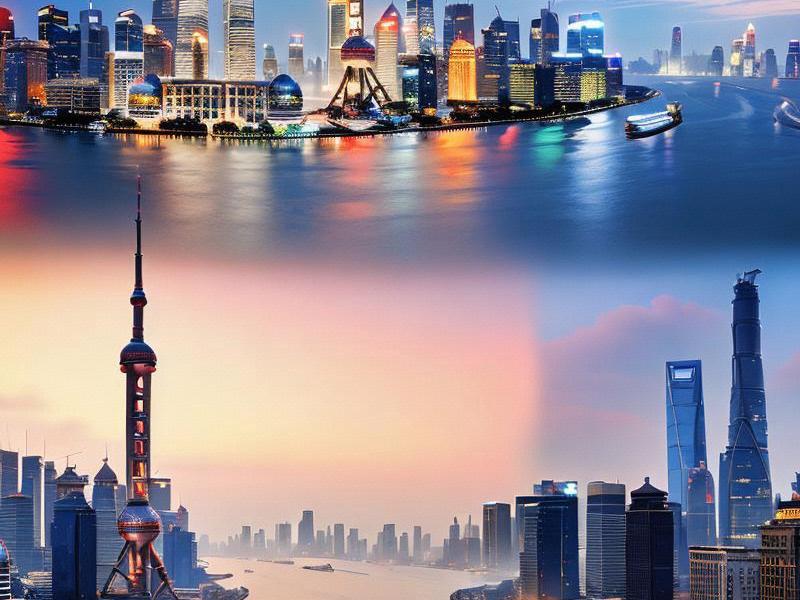Shanghai: A Global Metropolis with Endless Charm and Opportunities
⏱ 2025-05-02 19:41 🔖 爱上海娱乐联盟
📢0℃

Shanghai, the largest city in China, stands as a beacon of modernity and progress on the eastern coast of the country. With a population exceeding 24 million, it is not only the economic engine of China but also a vibrant cultural hub that attracts millions of visitors from around the world each year. This article aims to provide an in-depth look at the various facets of Shanghai, showcasing its unique blend of tradition and innovation.
The history of Shanghai dates back over two thousand years, with its strategic location along the Yangtze River Delta making it a crucial trading port for centuries. However, it was during the late 19th and early 20th centuries that Shanghai began to transform into a cosmopolitan city. The establishment of the International Settlement and the French Concession brought together people from diverse cultural backgrounds, creating a melting pot of cultures that still characterizes the city today.
One of the most striking features of Shanghai is its skyline, dominated by some of the tallest buildings in the world. The iconic Oriental Pearl Tower, the Jin Mao Tower, and the Shanghai Tower are just a few examples of the city's architectural prowess. These structures not only symbolize Shanghai's economic might but also serve as a testament to the city's ability to blend modernity with its rich historical heritage.
The Bund, a historic waterfront area, offers a glimpse into Shanghai's colonial past. Once lined with British and French concessions, the Bund now showcases a harmonious mix of colonial-era buildings and modern skyscrapers. Walking along the Bund at night, with the city lights reflecting off the Huangpu River, provides a truly magical experience.
阿拉爱上海
Shanghai's economic success is largely attributed to its status as a major financial center. The city is home to the Shanghai Stock Exchange, one of the largest stock exchanges in the world, and is a key player in global trade and finance. Its well-developed infrastructure, including the world's busiest container port, further solidifies its position as a global economic hub.
In addition to its economic achievements, Shanghai is also known for its vibrant cultural scene. The city boasts numerous museums, art galleries, theaters, and music venues, attracting artists, musicians, and performers from all over the world. The Shanghai Museum, with its extensive collection of Chinese art, and the Power Station of Art, a former power plant turned contemporary art museum, are must-visit attractions for culture enthusiasts.
Shanghai's culinary scene is another aspect that sets it apart. The city is a paradise for food lovers, offering a wide range of cuisines from all over China and the world. From traditional Shanghainese dishes like xiaolongbao (soup dumplings) and shengjianbao (pan-fried buns) to international flavors, there is something to satisfy every palate. The bustling food markets and the vibrant street food culture add to the city's culinary charm.
上海龙凤419自荐
The rapid urbanization of Shanghai has brought about significant changes to the city's landscape. High-rise apartment buildings and modern shopping malls have replaced many of the traditional shikumen (stone gate) houses that once characterized the city. While this urban sprawl has contributed to the city's economic growth, it has also raised concerns about preserving the city's historical and cultural heritage.
Efforts have been made to strike a balance between development and preservation. The Old Town, or Yuyuan Bazaar, is a well-preserved area that showcases traditional Shanghainese architecture and culture. The Yu Garden, a classical Chinese garden built in the Ming Dynasty, is another example of the city's commitment to preserving its cultural heritage.
Shanghai's transportation system is another aspect that sets it apart. The city boasts one of the most efficient metro systems in the world, providing convenient and affordable access to all parts of the city. The Maglev train, which connects Pudong International Airport to the city center, is a marvel of modern engineering, offering a fast and smooth ride.
上海花千坊龙凤
Despite its many achievements, Shanghai faces several challenges. The rapid pace of urbanization has led to issues such as traffic congestion, air pollution, and housing shortages. The city government has implemented various measures to address these challenges, including promoting green transportation, improving air quality, and increasing the supply of affordable housing.
Shanghai's future looks promising, with ongoing plans for further urban development and innovation. The city is set to host the World Expo in 2025, an event that will showcase the latest advancements in technology, culture, and sustainability. The Expo will provide an opportunity for Shanghai to reaffirm its position as a global leader and to inspire future generations.
In conclusion, Shanghai is a city that embodies the spirit of modernity and progress while cherishing its rich historical and cultural heritage. Its transformation from a traditional port city to a global economic powerhouse is a testament to the resilience and adaptability of its people. As Shanghai continues to evolve, it remains a beacon of opportunity and a source of inspiration for people from all over the world.
The city's unique blend of tradition and innovation, its vibrant cultural scene, and its economic achievements make it a fascinating place to explore. Whether you are interested in history, culture, cuisine, or urban development, Shanghai has something to offer. This article has provided a glimpse into the multifaceted aspects of Shanghai, but there is so much more to discover. So, pack your bags and embark on a journey to this captivating city, where the past meets the future, and where every corner holds a story waiting to be told.
Shanghai’s Fintech Renaissance: Where Bund Architecture Hosts Blockchain Revolution【外滩18号的秘密:百年建筑里的爵士复兴】Shanghai 4450: Quantum Nightlife Nexus and the Galactic Entertainment Singularity《夜上海的华丽转身:从百乐门到外滩十八号》《夜上海的三个瞬间:从礼查饭店到复兴艺术中心》Shanghai’s Quantum Nightlife: Where Imperial Gardens Host Blockchain-Powered Revelries【钢与梦的交响:上海天际线的百年叙事】Shanghai’s Green Renaissance: Where Ancient Waterways Fuel Quantum Innovation【灶披间到智能厨房:上海弄堂里的烟火进化史】Shanghai 4550: Quantum Delta Renaissance and the Galactic Sustainability Matrix

